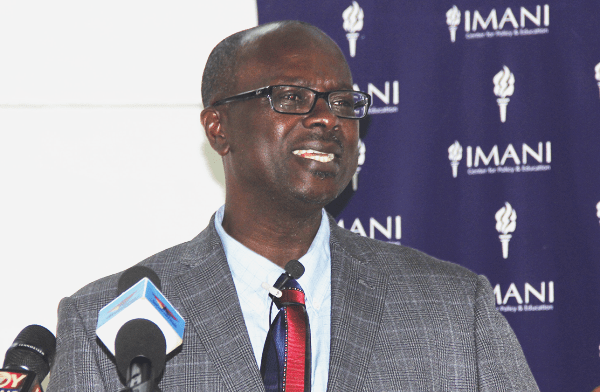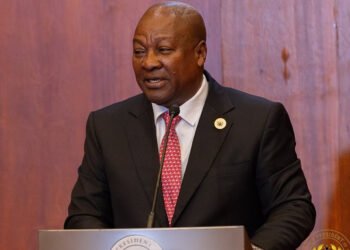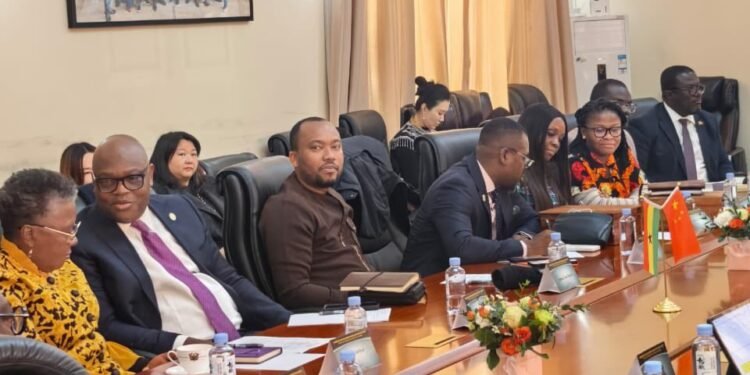In recent times, the conversation regarding the disenfranchisement of the people of Santrokofi, Akpafu, Likpe, and Lolobi (SALL) has gained significant traction, with a number of well-meaning Ghanaians, including leaders of civil society organizations and seasoned media practitioners, condemning the Electoral Commission (EC) for its failure to exercise adequate administrative oversight.
A directive issued by the Electoral Commission of Ghana on the eve of December 7, 2020 led to the unfortunate exclusion of SALL residents from participating in parliamentary elections, a situation that many see as a profound injustice in a democratic society.
At the heart of the issue is a contentious debate over the timing and implications of district creation and constituency establishment.
Professor Stephen Kweku Asare, Democracy and Development Fellow at the Ghana Centre for Democratic Development (CDD-Ghana), offered a critical perspective asserting that the EC’s explanation for the disenfranchisement of SALL residents is deeply flawed and indicative of a broader failure within the Commission to uphold its responsibilities.
He vehemently denounced the Electoral Commission’s claims that the creation of the Guan District occurred too late for it to establish a constituency for the people of Santrokofi, Akpafu, Likpe, and Lolobi in time for the elections, further refuting the EC’s position that the situation left it with no choice but to direct SALL residents to refrain from voting for a Member of Parliament on December 6.
“According to the EC, it is the President’s responsibility to create districts, and if these are created without sufficient lead time, the EC cannot be held accountable for any resultant disenfranchisement”.
Professor Stephen Kweku Asare, D&D Fellow, CDD-Ghana
Parliamentary Represenatation
Professor Asare, in denouncing the EC’s argument underscored that the EC’s stance effectively allows the President to manipulate the electoral landscape by timing district creations in a way that could hampers the EC’s ability to establish necessary constituencies.
This scenario, he argued undermines the independence of the EC and jeopardizes the primacy of representation, a cornerstone of democratic governance.
Professor Asare further asserted that the EC’s obligation is to ensure that every Ghanaian has the right to vote, regardless of the timing of district creations.
Furthermore, Professor Stephen Kweku Asare pointed out that the EC had ample time to address the issue.
He referenced Constitutional Instrument (CI) 128, published in July 2020, which clearly delineated Ghana into 275 constituencies for parliamentary elections, asserting that the EC should have adhered to such legal framework and not issued directives that contradicted it on the eve of the elections.
He emphasized that by doing so, the EC violated the law, a serious infraction that would have significant repercussions in any jurisdiction that values legal accountability.
“The SALL issue is not a November surprise as claimed by the EC. In fact, the Supreme Court had waded into that issue as far back as June in the Dzate case. The idea that the EC must create a constituency each time a President creates a district (1D 1C) is equally absurd and effectively outsources the EC’s power to create Constituencies to the President”.
Professor Stephen Kweku Asare, D&D Fellow, CDD-Ghana

Moreover, Professor Asare posited that the 1992 Constitution of Ghana mandates the EC to ensure equitable population distribution across constituencies, a requirement that does not restrict the creation of districts.
He emphasized that the Commission’s reliance on presidential directives to justify disenfranchisement exposes a significant administrative lapse, stressing that the failure of the EC is a result of the its unwillingness to learn from past mistakes and its lack of accountability.
To rectify this grave injustice, Professor Asare underscored the urgent need for the Electoral Commission to accept responsibility for its administrative failures.
It is therefore imperative that the EC takes immediate and concrete steps to ensure that the people of SALL are granted their rightful representation, at least in the next Parliament.
This includes revisiting the legal and administrative processes that led to their disenfranchisement and implementing reforms to prevent such occurrences in the future.
Ghanaians deserve a robust and independent Electoral Commission that prioritizes the rights of every citizen, ensuring that no one is left voiceless in the democratic process.
The EC must demonstrate its commitment to these principles, for while Ghanaians may face economic hardships, their democratic rights must not be trifled with.
READ ALSO:Energizing Africa’s Path to Industrialization and Energy Transition























